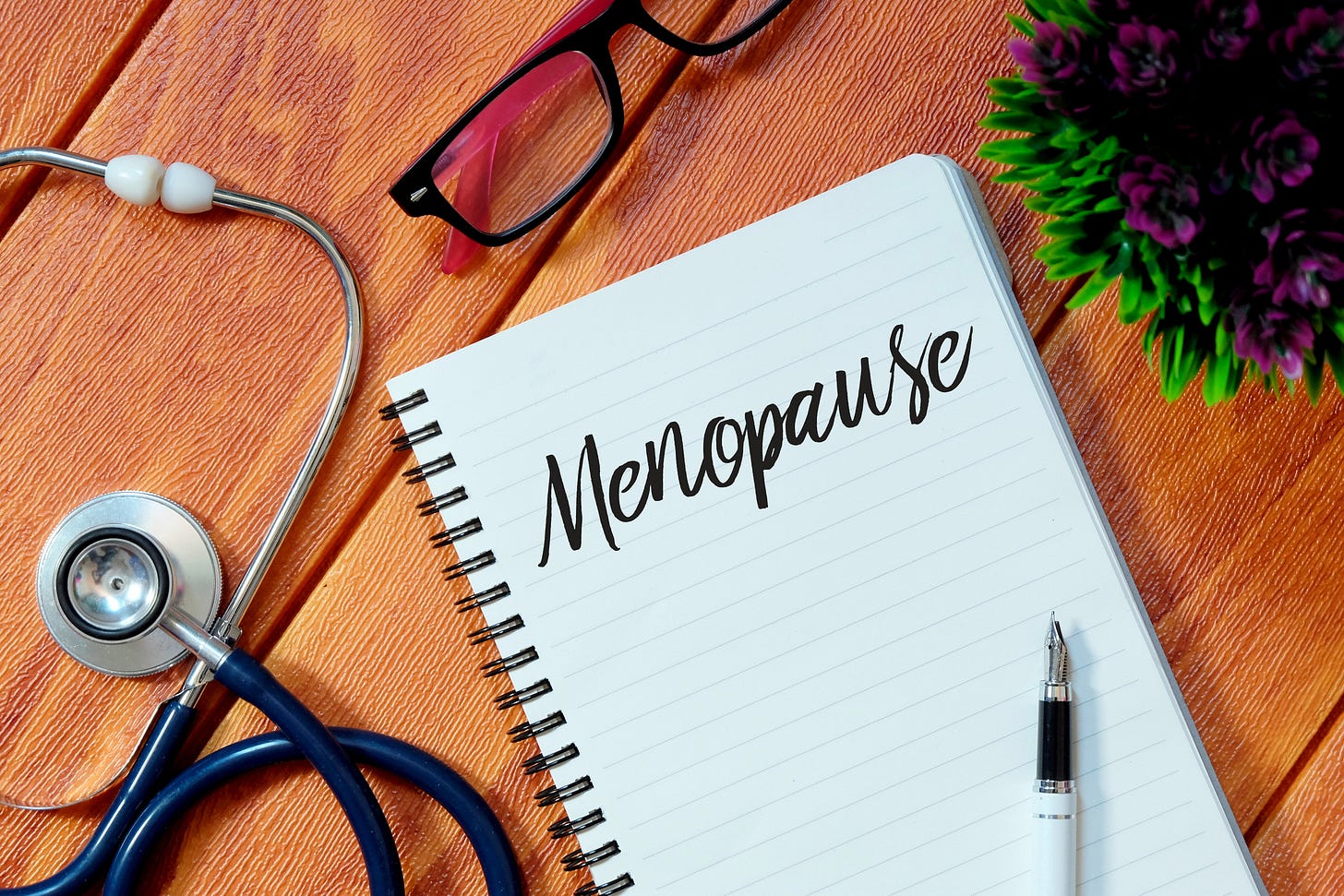When you're struggling with the effect of menopausal hormone therapy on mood
The Dodge
Menopausal hormone therapy, which are hormones delivered into the bloodstream, is recommended to treat hot flashes and bothersome night sweats and for prevention of osteoporosis. It can also help with vaginal symptoms. However, local estrogen therapy, which is estrogen that doesn’t get into the bloodstream, is the most effective therapy here and so is typically the first choice. We also recommend hormone therapy for primary ovarian insufficiency and for people who have had their ovaries removed before the age of 45, and in this situation the recommendation is to take hormones until the age 51-52 and then reassess.
There is data that suggests menopausal hormone therapy or MHT can have other health benefits, for example preserving muscle mass and a reduced incidence of type II diabetes, but the data is not strong enough to recommend it for these reasons. We also know that hormones don’t treat brain fog or prevent dementia. MHT can also help with low mood and mild depression in the menopause transition, but interestingly, it has no benefit after the final menstrual period.
Unfortunately, some doctors, the media, and some celebrities like to paint MHT as a general cure all. In fact, the way it is often portrayed makes it seem as if something is wrong with those women who feel worse on it or are unable to take it, like they are missing out on a magical elixir of life. Menopausal hormone therapy is not the fountain of youth that will prevent every disease associated with aging nor does it work for every woman. And if you don’t have bothersome symptoms or at at risk for osteoporosis, it isn’t recommended at all.
As I often hear from people who are on MHT and are struggling, I thought this question was worth discussing today, so I thought I would tackle this question that was left last week.
I'm in peri and am taking 2mg transdermal oestrogen daily plus 200mg micronised progesterone 14 days each cycle (changed after oral progesterone made me immediately suicidal, which was terrifying). I am having a miserable time on the progesterone days with depression, mood swings, bloating and increased eczema (although that could be a side effect of the stress).
I have bipolar disorder, which I've been successfully managing without meds, so looking after my mood/mental health is top priority for me. I feel doctors have been very dismissive of this, telling me MHT is proven to help depressive illness, which from my research it appears is definitely false, or at least an overly optimistic interpretation of the evidence. As I've never been able to tolerate any kind of hormonal contraception and have suffered from severe PMS all my life, I'm starting to think MHT might just not be for me - especially as the side effects make it difficult to find motivation to exercise, which has always been a key part of my MH strategy. Is there any other approach I haven't thought of?
None of what follows is personal medical advice, and it’s not possible to be definitive about what to do based on the information above. But there are definitely some points of discussion that people might find useful if they are on MHT and struggling, or if they have depression or PMS. Actually, I think many people will find the information useful in general.
(I am going to assume the original poster means a 0.2 mg estradiol patch, which is 200 mcg and that they are using pharmaceutical grade estrogen and not compounded products).
Why are you on hormones?
This is perhaps the first piece of information that is needed. In the menopause transition, a.k.a perimenopause, hormones might be started for a few reasons. The
Keep reading with a 7-day free trial
Subscribe to The Vajenda to keep reading this post and get 7 days of free access to the full post archives.


